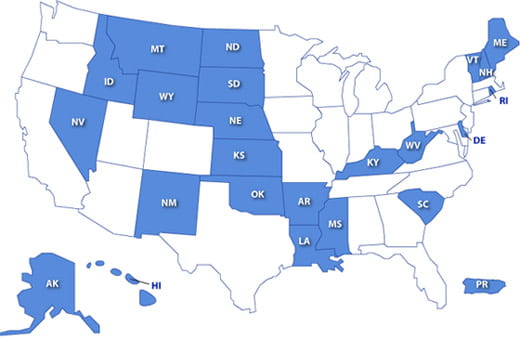The Institutional Development Award (IDeA) program broadens the geographic distribution of funding for biomedical research. Delaware is one of 23 states and Puerto Rico that receive IDeA grants, which aim to build research capacities in states with historically low levels of funding from the National Institutes of Health.
Delaware has received more than $229 million in IDeA funding, making it a top recipient. The IDeA program has had a $484 million impact in the First State since 2000, according to a Batelle Technology Partnership Practice study.

How does IDeA Funding Work?
The IDeA program has three components:
INBRE (IDeA Networks of Biomedical Research) focuses on expanding and strengthening the pipeline of biomedical researchers by funding infrastructure, faculty development, mentorship and other resources.
COBRE (Centers of Biomedical Research Excellence) provide support for a multidisciplinary center led by a NIH-funded investigator with critical expertise related to a particular area of focus.
The IDeA Clinical and Translational Research Programs support clinical and translational research through programs that develop research infrastructure and human resources, enhance the ability of investigators and institutions to develop competitive clinical research programs, and strengthen collaborative research that addresses health conditions prevalent in IDeA states.
IDeA Regional Entrepreneurship Development (I-RED) Program supports small business concerns in IDeA states to develop educational products that promote entrepreneurship in IDeA states’ academic institutions. Educational efforts utilizing these products are expected to build biomedical researchers’ and students’ entrepreneurial skills needed to translate scientific discoveries and innovative technologies into commercial products.
Delaware is one of 23 states and Puerto Rico that receive IDeA grants, which aim to build research capacities in states with historically low levels of funding from the National Institutes of Health.
Delaware IDeA Funded Programs
COBREs
In addition to INBRE, Delaware also is home to six COBREs focusing on sickle cell research, cardiovascular research and pediatric research, among others.
- Delaware Center for Musculoskeletal Research, Phase I – PI: Dawn Elliott (Grant Number: 5P20GM139760-03)
- Research Expanding Access to Child Health (REACH), Phase I – PI: Anne Kazak, Melissa Alderfer (Grant Number: 1P20GM144270-01)
- Discovery of Chemical Probes and Therapeutic Leads, Phase II – PI: Joe Fox (Grant Number 5P20GM104316-08)
- Center of Biomedical Research Excellence in Cardiovascular Health, Phase II – PI: David Edwards (Grant Number 5P20GM113125-07)
- The Delaware Comprehensive Sickle Cell Research Center, Phase II – PI: David Brousseau (Grant Number: 5P20GM109021-07)
- Delaware Center for Neuroscience Research, Phase III – PI: Melissa Harrington (Grant Number: 1P30GM145765-01)
Delaware CTR ACCEL
The Delaware CTR ACCEL is The ACCEL program provides resources, networking opportunities, pilot funding, research design and bio-statistical support, mentoring assistance, and community engagement opportunities to help develop, implement, and expand clinical and translational research. Gregory Hicks, PT, PhD, FAPTA, UD serves as PI of this two-state initiative, with UD, Christiana Care, Nemours and the Medical University of South Carolina as partner institutions. (Grant Number: 5U54GM104941)
Delaware ISPCTN
The ECHO IDeA States Pediatric Clinical Trials Network (ECHO ISPCTN) aims to enhance pediatric clinical trial access at state and national levels and to help carry out well-designed clinical trials in children. The ECHO ISPCTN is made up of research sites in 18 states including Delaware (Grant Number: 5UG1OD024958-06)
Delaware iRED
The IDeA Regional Entrepreneurship Development (I-RED) Program supports small business concerns in IDeA regions to develop educational products that promote entrepreneurship in IDeA states’ academic institutions. Educational efforts utilizing these products are expected to build biomedical researchers’ and students’ entrepreneurial skills needed to translate scientific discoveries and innovative technologies into commercial products (Grant Number: 1UT2GM151890-01)